Hymn Stories: Hymns of Revival
“Sing to the Lord, you saints of his; praise his holy name.”
Psalm 30:4 NIV
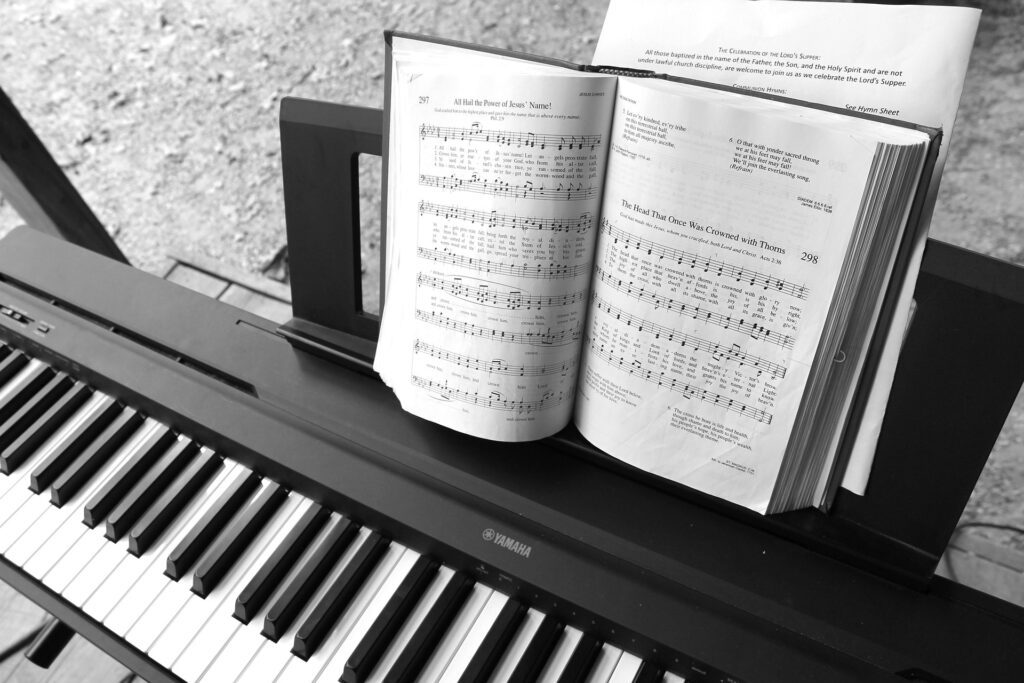
Robert J. Morgan, a pastor in Nashville, Tennessee, has written a number of Christian books, including a series called Then Sings My Soul, which chronicles the stories behind many of our beloved hymns. His introduction to the first book in this series is titled “The Cure for Shot Nerves,” and describes how he once spent an hour walking around a small pond near a motel, on the verge of an emotional breakdown. As he walked, the words of various hymns came to his mind and he began singing softly. He explains, “That hour by the tiny lake was better for me than a month of therapy, and it did me more good than a dozen self-help books. Then and there I felt emerging twinges of a ‘restored soul.’ “
More than any other genre of music, hymns seem to have this power. I love many different kinds of music, including contemporary praise songs, but I have often found that when I’m struggling with a problem or concern, the Holy Spirit uses hymn lyrics to speak to me. One of the most frequent commands in the Bible is to sing to the Lord. This is how we can worship Him, yes, but I don’t think that’s the only reason God wants us to sing. We are instructed to get the Word of God into our hearts and minds, and a wonderful way to do this is through song. Many of the old hymns are based on Scripture and often the authors felt divinely inspired to write them. Also, as mentioned above, sacred music has the ability to restore and revive our souls. In this post I will share the stories behind three hymns I associate with a good old-fashioned revival service. My daughter Rebekah and I recorded each of these hymns so that you can hear them sung. We are not professionals and these videos are not perfect, but we are sincere in our love for these old songs. We hope that you will also be blessed by them.
“Place these words on your hearts. Get them deep inside you.”
Deuteronomy 11:18 MSG
Saved
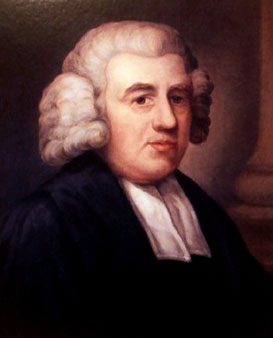
As a young child John Newton was brought up by a Christian mother who taught him to memorize Scripture and sing hymns. In fragile health, she died when John was about seven. His earliest memories were of her prayers for him and her nurturing of his soul. However, after her death, he began to stray. He left school at age eleven for a rough life at sea.
He was forced into service with the British Navy. He deserted and was captured. As punishment he was flogged in front of the other sailors on the ship. Humiliated, he considered murdering the captain or throwing himself overboard. As he recalled, “I was capable of anything.” He eventually recovered, but the worst was yet to come. The low point of his life was his work as a slave trader. He described his debauchery during this period: “I not only sinned with a high hand myself, but made it my study to tempt and seduce others upon every occasion.” One day at sea a terrible storm threatened to destroy the ship. Fearful for his life, he cried out to God for help but feared he was too sinful for God to save. He later recorded, “That tenth of March is a day much remembered by me; and I have never suffered it to pass unnoticed since the year 1748 — the Lord came from on high and delivered me out of deep waters.” That day God not only saved Newton’s life, He saved his soul.
“But where sin increased, grace increased all the more . . .”
Romans 5:20 NIV
It didn’t happen overnight, but John Newton gradually became a changed man. He quit the slave trade and began to transform his way of life. He felt a call to the ministry and at age thirty-nine was ordained in the Church of England. He became one of the most effective preachers in British history. Never forgetting his wretched past, he also became a powerful foe of slavery. To add impact to his preaching he introduced heartfelt hymns to his services, writing many of them with his good friend, poet William Cowper. His most famous hymn, originally titled “Faith’s Review and Expectation,” was written to accompany a sermon, presented New Year’s Day 1773, on David’s humble prayer in 1 Chronicles 17. John P. Rees later added another verse. Around 1835 the hymn, sung to a popular folk tune, swept through America and gained a new following. Now known by it’s opening phrase, the hymn has become one of the most well-known and well-loved of all time.
“Amazing Grace”
Amazing grace! How sweet the sound that saved a wretch like me!
I once was lost, but now am found, was blind but now I see.‘Twas grace that taught my heart to fear, and grace my fears relieved;
How precious did that grace appear the hour I first believed!The Lord has promised good to me, His word my hope secures;
He will my shield and portion be as long as life endures.Through many dangers, toils, and snares I have already come;
‘Tis grace hath brought me safe thus far, and grace will lead me home.When we’ve been there ten thousand years, bright shining as the sun,
TEXT: John Newton; John P. Rees, stanza 5
We’ve no less days to sing God’s praise than when we’d first begun.
God gives us His grace when we least deserve it, and that grace has the power to transform our lives! John Newton lived into his eighties, faithfully serving God. Near the end of his life he proclaimed, “My memory is nearly gone, but I remember two things: That I am a great sinner and that Christ is a great Savior!”
“And God is able to make all grace abound to you, so that in all things at all times, having all that you need, you will abound in every good work.”
2 Corinthians 9:8 NIV
Blessed
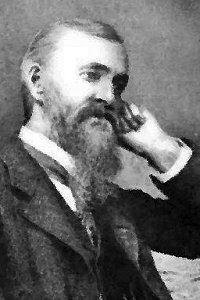
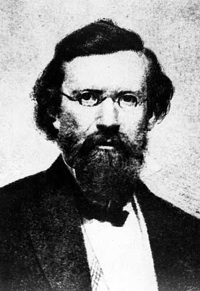
Sanford Fillmore Bennett was a pharmacist and amateur song writer in Elkhorn, Wisconsin. One day in 1868 his friend Joseph Webster, a local musician, walked into the drugstore looking particularly blue. Fillmore asked his friend what was troubling him, and Webster replied, “It’s no matter. It will be all right by and by.”
Immediately an idea for a new hymn came to Bennett and he ran to his desk and begin writing. Ignoring a couple of customers who came into the store, he lost himself in his poem. Finally, he stood up and handed the paper to Webster, saying, “Here is your prescription, Joe. I hope it works.” Webster read the words aloud and quickly composed a melody. He picked up his fiddle and enlisted the two waiting customers to try out the new song along with him and Bennett. As they were singing, another customer enetered the store and remarked, “Gentlemen, I never heard that song before but it is immortal.” Yes, it is!
“Sweet By and By”
There’s a land that is fairer than day, and by faith we can see it afar;
For the Father waits over the way to prepare us a dwelling place there.
In the sweet by and by, we shall meet on that beautiful shore.
In the sweet by and by, we shall meet on that beautiful shore.We shall sing on that beautiful shore the melodious songs of the blest,
And our spirits shall sorrow no more, not a sigh for the blessing of rest.
In the sweet by and by, we shall meet on that beautiful shore.
In the sweet by and by, we shall meet on that beautiful shore.To our bountiful Father above we will offer our tribute of praise,
TEXT: Sanford F. Bennett
For the glorious gift of His love and the blessings that hallow our days.
In the sweet by and by, we shall meet on that beautiful shore.
In the sweet by and by, we shall meet on that beautiful shore.
“For here we do not have an enduring city, but we are looking for the city that is to come.”
Hebrews 13:14 NIV
Renewed
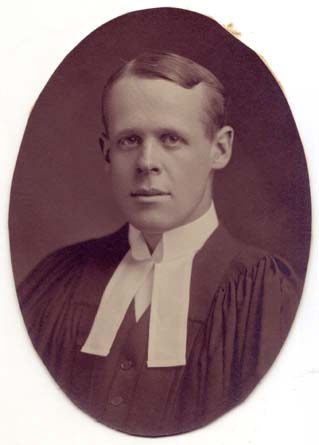
William Paton Mackay was a Scottish doctor who was called to the ministry in 1868. Here is his astonishing testimony as recorded in Robert J. Morgan’s book Then Sings My Soul: 150 of the World’s Greatest Hymn Stories:
“My dear mother . . . had been a godly, pious woman, quite often telling me of the Savior, and many times I had been a witness to her wrestling in prayer for my soul’s salvation. But nothing had made a deep impression on me. The older I grew the more wicked I became . . . .
“One day a seriously injured [laborer] . . . was brought into the hospital. The case was hopeless . . . . He seemed to realize his condition, for he was fully conscious, and asked me how long he would last . . . . I gave him my opinion in as cautious a manner as I could. . . .
” ‘Have you any relatives whom we could notify?’ I continued. The patient shook his head . . . . His only wish was to see his landlady, because he owed her a small sum, and also wished to bid her farewell. He also requested his landlady send him, ‘The Book . . . .’
“I went to see him on my regular visits at least once a day. What struck me most was the quiet, almost happy expression constantly on his face . . . . After the man died, some things about the deceased’s affairs were to be attended to in my presence.
” ‘What shall we do with this?’ asked the nurse, holding up a book in her hand. ‘What kind of book is it?’ I asked. ‘The Bible of the poor man . . . . As long as he was able to read it, he did so, and when he was unable to do so anymore, he kept it under his bed cover.’
“I took the Bible and — could I trust my eyes? It was my own Bible! The Bible which my mother had given me when I left my parents’ home, and which later, when short of money, I sold for a small amount. My name was still in it, written in my mother’s hand . . . .
“With a deep sense of shame I looked upon . . . the precious Book. It had given comfort and refreshing to the unfortunate man in his last hours. It had been a guide to him into eternal life, so that he had been enabled to die in peace and happiness. And this Book, the last gift of my mother, I had actually sold for a ridiculous price . . . . Be it sufficient to say that the regained possession of my Bible was the cause of my conversion.”
“Lord, I have heard of your fame; I stand in awe of your deeds, O Lord. Renew them in our day, in our time make them known; in wrath remember mercy.”
Habakkuk 3:2 NIV
As a Presbyterian clergyman, William P. Mackay wrote a number of hymn texts. His most well-known, set to a tune by John J. Husband, is based on Habakkuk 3:2, a prayer of both praise and pleading.
“Revive Us Again”
We praise Thee, O God, for the Son of Thy love,
For Jesus who died and is now gone above.
Hallelujah, Thine the glory! Hallelujah, amen!
Hallelujah, Thine the glory! Revive us again.We praise Thee, O God, for Thy Spirit of light,
Who has shown us our Savior and scattered our night.
Hallelujah, Thine the glory! Hallelujah, amen!
Hallelujah, Thine the glory! Revive us again.All glory and praise to the Lamb that was slain,
Who has borne all our sins and has cleansed every stain.
Hallelujah, Thine the glory! Hallelujah, amen!
Hallelujah, Thine the glory! Revive us again.Revive us again: fill each heart with Thy love;
TEXT: William P. Mackay
May each soul be rekindled with fire from above.
Hallelujah, Thine the glory! Hallelujah, amen!
Hallelujah, Thine the glory! Revive us again.
“Therefore we do not lose heart. Though outwardly we are wasting away, yet inwardly we are being renewed day by day. For our light and momentary troubles are are achieving for us an eternal glory that far outweighs them all.”
2 Corinthians 4:16-17 NIV
Refreshed
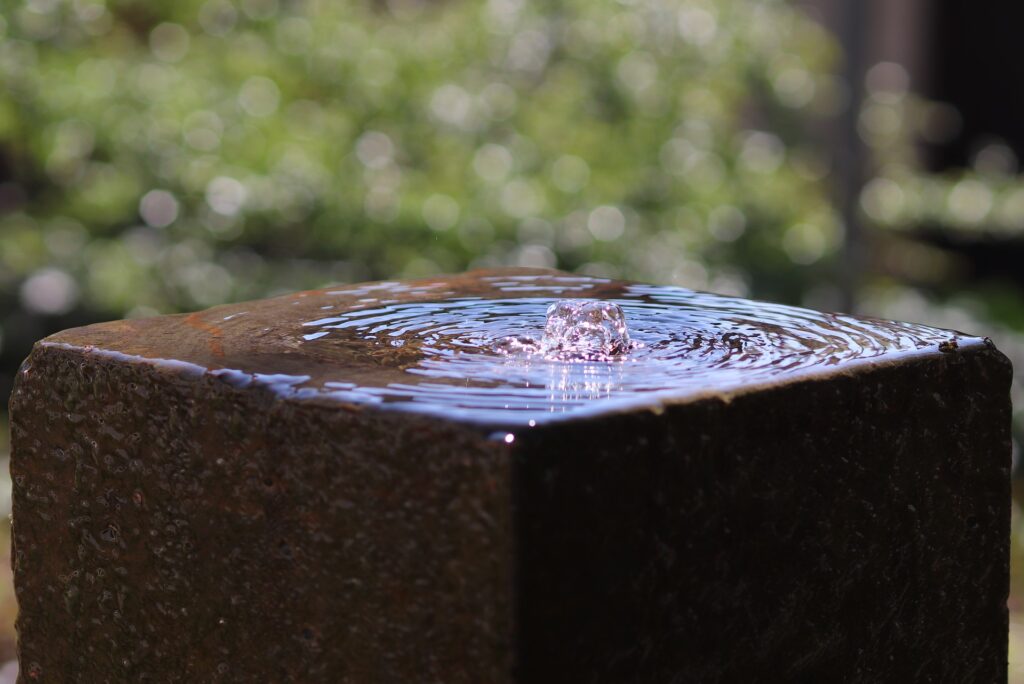
“. . . refresh my heart in Christ.”
Philemon 1:20
God wants us to be refreshed so that we can be ready to do His work. Jesus said that we are the light of the world. We are called to shine in the face of darkness and evil. Music can be a powerful way to do that. I posted a video below of a gospel choir made up of different ages and nationalities performing on the television show “Britain’s Got Talent.” Their combined voices as they sing “This Little Light of Mine” create an amazing energy that seems almost divine. I imagine thousands of angels joining in with the choir and audience members in praise as they belt out the lyrics. Just listen to the reactions of the judges after the performance! With all that we’ve been through lately in this country and in the world, we could use some light. I can’t watch this video without smiling and feeling uplifted. I hope it makes you feel that way, too. For just a few minutes, sit back and enjoy the pure joy experienced by everyone in the room during this song.
“You are the light of the world. . . . let your light shine before men, that they may see your good deeds and praise your Father in heaven.”
Matthew 5:14,16 NIV
Music has the power to refresh us, energize us, and speak to us in ways that nothing else can. This week’s Scripture passages are based on the hymns we explored. There is a printer-friendly pdf version below the image. I hope they will strengthen you and rekindle your soul. May we all be revived again and filled with God’s amazing grace so that we can do His work . . . until we meet in heaven in the sweet by and by!
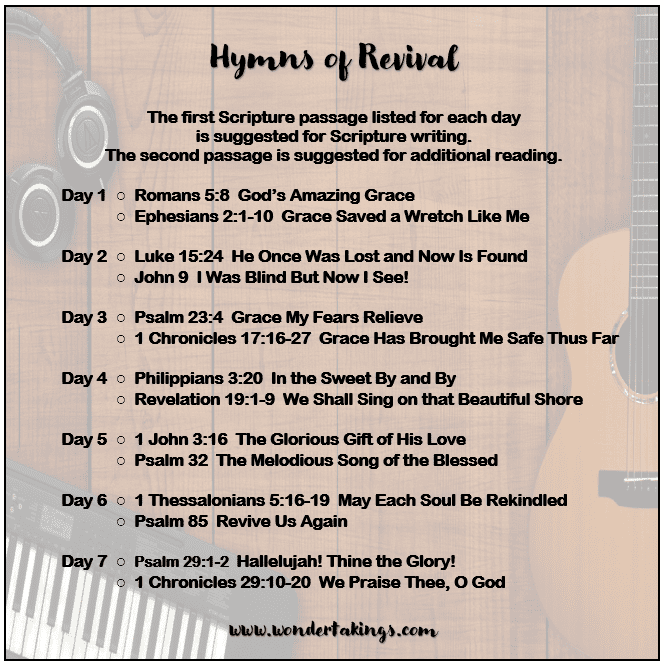
“Create in me a pure heart, O God, and renew a steadfast spirit within me.”
Psalm 51:10
References:
- Morgan, Robert J. Then Sings My Soul: 150 of the World’s Greatest Hymn Stories. Thomas Nelson, 2003.
- Osbeck, Kenneth W. Amazing Grace: 366 Inspiring Hymn Stories for Daily Devotions. 2nd ed., Kregel Publications, 2002.
- Petersen, Randy. Be Still My Soul: The Inspiring Stories behine 175 of the Most-Loved Hymns. Tyndale House Publishers, Inc., 2014.
- “The 100 Voices Of Gospel go for gold! | Week 2 Auditions | Britain’s Got Talent 2016.” YouTube, uploaded by Britain’s Got Talent, 16 April 2016, www.youtube.com/watch?v=dK_FiuyVU2Y.
Images:
- Church featured image by Pete Linforth from Pixabay
- Keyboard image by Hollie Ramsey from Pixabay
- John Newton image in U. S. public domain from Wikimedia Commons
- Sanford Fillmore Bennett image in U. S. public domain from Wikimedia Commons
- Joseph Philbrick Webster image from http://digital.library.wisc.edu/1711.dl/JosephWebster
- William P. Mackay image from https://regenerationandrepentance.wordpress.com/2014/11/20/in-loving-memory-the-story-of-dr-william-p-mackay-and-the-faithfulness-of-god/
- Fountain image by Ralf Unstet from Pixabay
Related Posts
About The Author
Christa
My vision for Wondertakings was to create a devotional blog for "nerdy" Christians like me. I do believe, as Socrates said, that wisdom begins in wonder. So I love to read or watch anything that inspires wonder and figure out what I can learn from it. I view it all through a Christian lens. I believe that God can and does speak through many sources in many ways, even if those speaking are not aware of it. I am not an expert in theology or religious studies. My goal with this blog is simply to share what I've learned as a fellow student and sinner in the Christian walk. My hope and my prayer is that by doing so I may be able to help someone else. In Deuteronomy 5:33 (NLT), we are told: "Stay on the path that the Lord your God has commanded you to follow. Then you will live long and prosperous lives. . . ." So in the words of Moses (and Spock), live long and prosper, my friends!